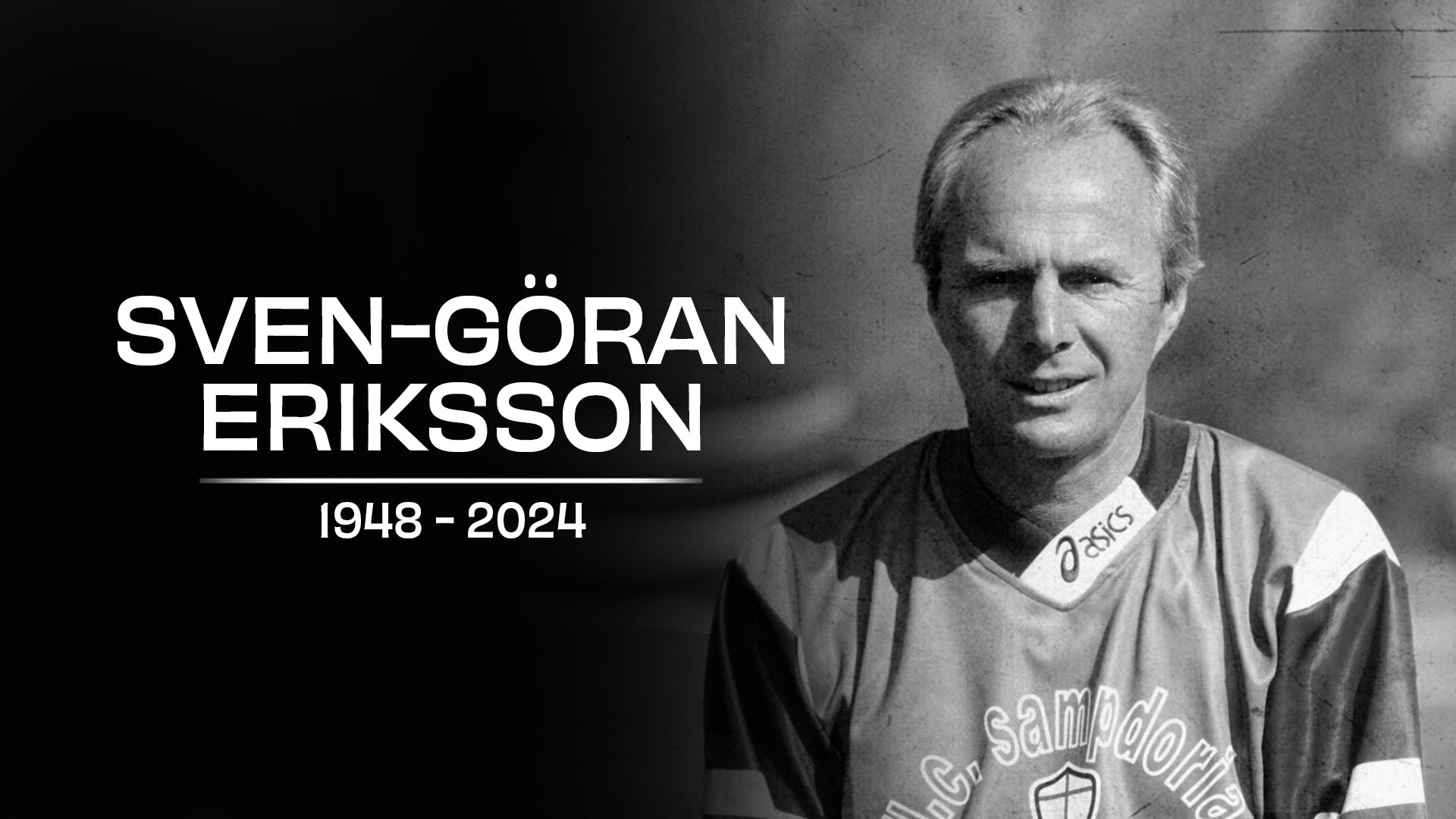Sven-Goran Eriksson Tribute

Sven-Göran Eriksson is considered a legendary figure in the world of soccer and is among the greatest managers of all time. As England’s first overseas manager and winner of multiple honours at club level, he has left a lasting impact on the sport forever. With a remarkable career spanning over four decades, Eriksson’s influence on the beautiful game is reflected through his tactical genius, strong leadership qualities, and genuine appreciation of human nature.
Even at the end of his incredible life, Sven-Göran Eriksson prioritized spreading positivity to his fellow coaches, players, and fans. His farewell message to the general public spoke of his unique perspective on life and how, regardless of his many achievements as a coach, his greatest wish is to be remembered as a positive person. Let’s explore the life and achievements of this beloved soccer figure and look back on what made Sven-Goran Eriksson a legend!
Early Career and Rise to Success
Sven-Göran Eriksson was born on February 5, 1948, in Sunne, southern Sweden. Born into a close-knit family, Sven’s father was a bus conductor, while his mother worked in a textile store. Eriksson made his debut for Swedish football Division 4 team Torsby IF at the age of 16. In 1972, he joined Swedish football Division 2 team KB Karlskoga, while he also worked as a physical education teacher in Örebro. At his third and final club, Karlskoga, he was influenced by the player-manager, Tord Grip, who favoured the English style of play, and the pair went on to form an enduring coaching alliance and friendship. Eriksson retired from playing in 1975 at the age of 27 and after giving up on his dream of playing professional football, he summarized his brief playing career by saying: "I was looked upon as a distinctly average defender, but someone who rarely made mistakes". After Tord Grip left his position at Degerfors to become assistant manager to the Swedish national team, Eriksson took his place as manager of the club in 1977. This impressive promotion allowed Sven to quickly make a name for himself, attracting the attention of much larger clubs.
Eriksson was later appointed manager of IFK Göteborg in 1979. The decision was such a surprise as many of the players had never even heard of him. In 1982, IFK Göteborg became the first Swedish club to win a European trophy in the UEFA Cup final. His success managing the club demonstrated his potential for greatness; however, it was his achievements on the European stage that got the attention of the world. After IFK Göteborg, Benfica was next in his managing journey, which would include clubs in five countries and four national teams over the next 40 years. He won seven trophies at Lazio, including the 1999 European Cup-Winners’ Cup and the 2000 Serie A title, and even influenced a number of players who went on to become respected coaches themselves.
International Success & Legacy
Following Eriksson’s success managing a star-studded team and demonstrating his unwavering skills as an up-and-coming manager, his career reached new heights when he took over as the manager of the England national team in 2001, after being pursued by The Football Association to replace former manager Kevin Keegan. He’s remembered as the first foreign manager to take charge of the England men's team, and the so-called 'golden generation' of players in the early 2000s that included David Beckham, Steven Gerrard, Frank Lampard, Michael Owen, and Wayne Rooney. He singlehandedly improved England's FIFA World Rankings place from seventeenth in January 2001 to fifth in July 2006, reaching fourth during the 2006 World Cup, and was rated in 2007 by The FA as England's second most successful manager after Alf Ramsey. His stock phrase "First half good, second half not so good" entered the public consciousness and continues to be used to describe England's performances to this day.
Under Eriksson, England achieved the highest point percentage in major tournament matches of all time for an England manager, achieving top qualifying place in all three international tournaments.
Despite winning over the England fans, Sven-Göran Eriksson also dealt with the unfavorable consequences of fame, specifically with being in the public eye. Sven’s private life was a fascination for many during the peak of his career and he was never far from headlines. Through it all, Eriksson always maintained his positive outlook on life and never took things too seriously. People who were close to him have said that Sven’s smile never seemed to falter and he was always a source of happiness and inspiration for many.
In 2007, Eriksson was confirmed as the new manager of Manchester City. He was City's first manager from outside the United Kingdom and the first Swedish manager in the Premier League. Manchester City went on to beat reigning Premier League champions Manchester United in 2007, after which Eriksson received the Premier League's Manager of the Month award. Sven-Göran Eriksson went onto manage for the Mexico national team, Notts County, Ivory Coast, Leicester City, China, and the Philippines national team.
After the announcement of his terminal illness in March 2024, Sven-Göran Eriksson came out of retirement for one match to manage the Liverpool Legends for their charity match against Ajax. Sven was also honoured by his former clubs Benfica, IFK Göteborg, Sampdoria, Lazio, Degerfors IF, and Torsby IF. Today, Eriksson's legacy lives on as a testament to his dedication and passion for the beautiful game. His contributions to football have earned him a well-deserved place among the sport's all-time greats and his positive outlook on life continues to influence players and coaches around the world.
- Tags: LIFESTYLE
0 comments













